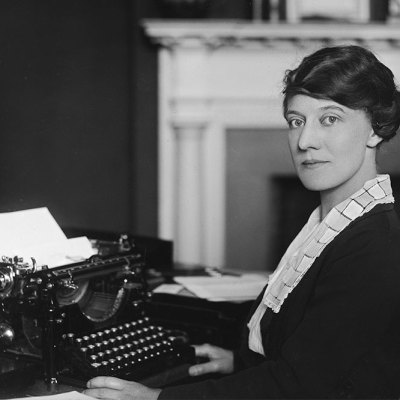In an office, it is almost impossible to escape the curse of looking like an archetype to others – the gossip, the narc, the social climber, et cetera et cetera – and equally impossible to keep from categorising those around you in a similar fashion. Dressing for one’s job is therefore an exercise in the maintenance of a persona, making those who are the most skilled at expressing themselves through professional dress the kind of people who innately understand the power of costume. All of this is to say that there may be no more perfect artist for the job of satirising the aesthetics and dynamics of the workplace than the photographer, film-maker and elite Instagrammer Cindy Sherman, whose surprisingly little-known feature film, Office Killer (1997), plays on her visual lineage of hysterical, sometimes frightening female stereotypes to paint a picture of a corporate world in crisis. Set at a trade magazine and opening with a flurry of staff layoffs and downsizings, it winks at the rom-com trope of a woman so thoroughly consumed by her tedious 9 to 5 that she has no real life by having its lead character, a copywriter named Dorine, turn into a deranged serial killer at the prospect of being made to work from home. ‘Some people say they like it so much,’ the IT guy tells her as he sets up an already-dated laptop in her bedroom, ‘they stop speaking to people in person.’ Contemporary viewers may find themselves, as I did, laughing bitterly at the line, especially if they are also watching Office Killer on a woefully outdated laptop in their bedroom on their non-existent lunch break.
Dorine’s first killing, albeit an accidental one, is that of her sleazy, macho boss, who is electrocuted while attempting to fix her malfunctioning computer; after this, her focus shifts to her co-workers, not out of a sense of competition but out of a sense of dislocation. Each time she dispatches a new colleague, she smuggles the body home and rearranges it artfully on the couch, a witty joke on Sherman’s part about the messy business of being an artist playing with identity as much as it is a reflection of Dorine’s need to validate herself through her proximity to her job. Each of Office Killer’s women is a ‘type’ exploded outwards, driven insane by her work in a way that imbues her with her own set of neuroses. Dorine, played by Carol Kane, is shy and mousy, bespectacled and perpetually shrouded in thick knitwear; her hipsterish colleague Kim is played by Molly Ringwald, clad in Pucci and a little snooty; Barbara Sukowa makes Virginia, a chic, chain-smoking asthmatic with a penchant for gold jewellery, into a Teutonic take on Absolutely Fabulous’s Patsy Stone. It is unclear how any of them ended up working at Constant Consumer Magazine, save for Dorine, who is following in the footsteps of her father. (Worse even than being a killer: she’s a nepotism hire.) Nobody is truly happy; nobody displays ambition, or appears to experience anything approaching hope. Nobody other than Dorine is seen much outside the confines of the office, unless it is for a brief, unsatisfying drink with colleagues after work. Death, in contrast to ongoing employment at Constant Consumer, is at least a change of pace.
Watching Office Killer, I thought of a poem by the writer Rachel Rabbit White, in which she repeats the refrain ‘I would rather die than work/I would rather die than work/I would rather die than work.’ Sherman’s film suggests that in a corporate and capitalist environment, not working – not being within the office, functioning as a cog in the machine – is tantamount to death, or at the very least can drive a person mad. In the film’s last scene, when Dorine has burned her house down and abandoned her original identity, fleeing the city in a blonde wig with her office manager’s head stuffed into her duffel bag, she is still circling job listings in the paper, looking for a new position. It’s a good joke, albeit a depressing one: given free reign to reinvent herself, she cannot picture anything more unusual or outrageous than a different admin job, a different desk, a different boot to pulverise her in exchange for what is presumably, given that she is a copywriter, an insulting wage. Her name and hairstyle may be different, but it turns out to take something more than murder to escape the corporate rat race. ‘A new job awaits me somewhere,’ she says in voiceover, a threat in deep disguise as a covering letter, ‘maybe even in your office. I hope we can get along.’
Office Killer (1997), directed by Cindy Sherman, is now available to stream in the United States and Canada on the Criterion Channel.



